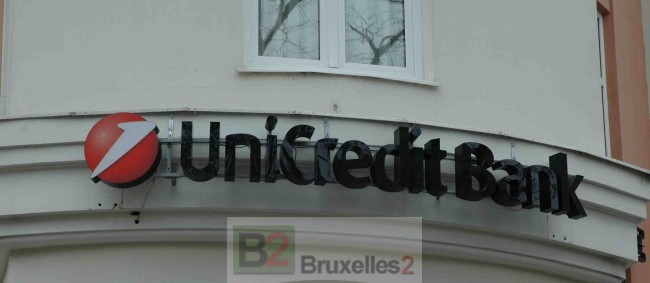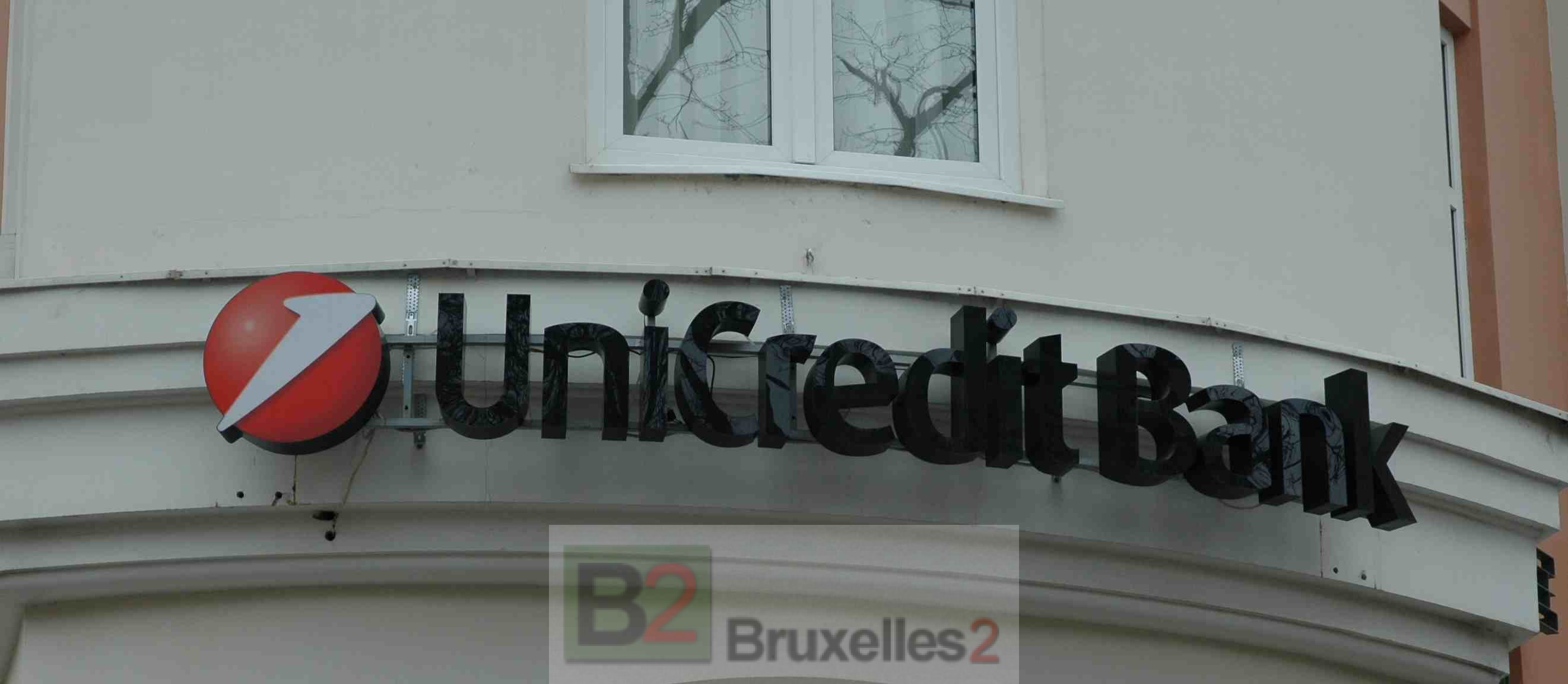The boomerang effect of economic sanctions on Russia

(BRUSSELS2) The introduction of sanctions by the Europeans against Russia - planned on the agenda of the next Council of Foreign Ministers - could very quickly have a boomerang effect, particularly in certain European countries. A direct effect... or indirect. Even if on the table are, for the moment, only plans to freeze the assets of Russian personalities accused "to threaten the territorial integrity of Ukraine", this measure could, in fact, not remain without reaction... from Moscow! Between Europe and Russia, there are indeed not only words and politics, there is also business, economic relations, which are much more important than yesterday. Economies are more intertwined than during the Cold War. This is the big difference between this crisis and previous crises.
The third trading partner for Europe
Russia is thus the Europeans' third largest trading partner, behind the United States and China. It represents approximately 7% of exports and 12% of imports of goods from the 28 countries of the European Union. Trade flows are fairly structured: Europeans mainly import energy products (gas, oil, etc.) and mainly export manufactured products (machine tools, cars, chemicals, etc.). Russia thus represents an outlet of choice for industrial products from several countries (Germany, but also Poland, the Netherlands, Italy, United Kingdom, etc.), including in military matters. For Russia, Europe is also a partner of choice, and even the first of them, since it represents about half of its outlets.
Constant increase
And these exchanges are increasing rapidly. According to European statistics, in ten years, from 2002 to 2012, European exports to Russia have more than tripled, from 34 billion euros to 123 billion euros, while imports have followed the same progression. rising from 65 billion euros in 2002 to 215 billion in 2012. However, they remain marked by a deficit which is also tending to swell, rising from 31 billion euros in 2002 to 92 billion in 2012.
Who exports? Who matters? Germany and Italy in the lead
Among European states, Germany is by far the largest exporter to Russia (30% of European Union exports, or 27,4 billion euros). It is followed by Italy (8 billion euros, or 9%), the Netherlands and Poland (6,1 billion euros each, or 7%). France ranks fifth (6 billion, or 7%). If we take imported products - mainly gas or oil -, Germany is still Russia's main customer (28,8 billion, or 19% of European Union imports), followed by the European countries. Low (22,4 billion, or 14%), Italy (14,9 billion, or 10%) and Poland (13,9 billion, or 9%). France imports relatively little and is tied with Belgium in the 5the square (7,9 billion).
Fears in Finland
The Nordic country particularly fears the effect of the sanctions. At the end of a meeting of the Interministerial Committee for Foreign and Security Policy on Tuesday, President Niinistö officially echoed these fears: if sanctions are decided at European level against Russia, they would be felt in Finland too. Finnish exports to Russia are already victims of the fall of the rouble, according to the daily Kauppalehti. The fall of the ruble is particularly difficult for companies in the agri-food sector. While the visa freeze could halve tourism receipts in Finland. Finnish exports to Russia had already shrunk by 6% in 2013.
In the Nederlands
The Dutch-British multinational Shell has significant interests in Russia on the Sakhalin-2 project, carried out with the gas giant Gazprom, which itself is engaged in the province of Groningen. As for Lukoil, it acquired a refinery in the Netherlands with 46 service stations. Without forgetting the Dutch ports make it possible to ensure the transit towards the world market of a large quantity of Russian oil... We understand the prudence of the Prime Minister Mark Rutte recently calling to consider the sanctions with " a lot of caution ».
...And in Germany
German companies are the most committed in both Russia and Ukraine. And it is they who could most quickly be affected by economic sanctions measures (or retaliatory measures). In recent days, German stocks have played the "yoyo" stock market, recording significant declines, while the results, otherwise are rather good. Automotive manufacturers - Volkswagen (- 3% in 5 days while at the same time good results were announced for Audi), Continental -, the industrial conglomerate Siemens (-6% in a few days), the energy groups EON and RWE, and even the Deutsche Telekom operator are shaken. In general, the stock market, sensitive to the slightest shock, recorded significant declines last week for the main companies engaged in Russia: the French Societe Generale and Renault tasted but also the Danish beer manufacturer Carslberg, the Austrian bank Raiffesen and its Italian counterpart. Unicredit, the Finnish tire manufacturer Nokian Tyres.
All-round investments
More generally, possible sanctions against Russia would affect almost all major energy companies. The British BP could be affected (especially since it owns 20% of the Russian giant Rosneft), but also the American Exxon Mobil or the Italian Eni, which are engaged in the exploitation of pockets of offshore hydrocarbons off Crimea. We can thus understand the reluctance of several countries to frankly consider economic sanctions. Especially since Moscow has several levers that it can operate. The presence of Russian oligarchs in several banks or companies, particularly in south-eastern Europe (Bulgaria, Cyprus, Greece, etc.) but also in Italy is a factor. Its promise to supply gas at an attractive price to countries like Greece which are in the process of economic recovery is another.
Economics ... a nuclear weapon?
In fact, the Ukrainian-Russian crisis could cost Europe dearly and threaten growth in 2014, a year seen by everyone as "the year of recovery". Russia cannot completely play with fire either because it is part of its financial and economic power that it is thus playing on a green carpet, with the risk of becoming a "risky land" for investors. Thus economic ties could play in this political crisis the soothing role of limit-limits that "nuclear" played yesterday, at the time of the cold war.
(Nicolas Gros-Verheyde)


Another excellent article by Nicolas!
An article that puts the cross-cutting issues into perspective!
Could also have been mentioned the financial dimension – and in particular banking – of the massive deposits of currency by the new rich Russians in our banks and other juicy investment funds!
It is no coincidence that London has been the most fervent opponent of economic sanctions against the Russian Federation!
Especially since this type of offensive instrument, we only use it once... And then, we pay for it for a long time!
To govern is to foresee! Foreseeing means looking further than the end of your little nose!
Sanctions have always been a fairly blunt and ineffective weapon and a threat to the people rather than the dictator: Iran, Iraq etc.
Russia has already become, in a few days, a land at risk for investors. Capital is already fleeing at a frantic pace, the main Russian bank Sberbank (controlled by the State) has changed, in 6 weeks, its growth forecast for 2014 from 2.3% to -0.2%. Here it is, the cost of military intervention in Ukraine!
Of course, real sanctions would also have a cost for Europe, but our economies are considerably more diversified and resilient than the Russian economy. The great statements of the Russians on the subject “you will not dare” and “even if you dare, you will not manage to cause us damage” are only bravado. The reality is that even before the sanctions, Russia has already dealt a huge blow to its own economy.